Before reading…
Here’s the original— Beauty and Beast’s “Bonjour”, sung by Belle. Let’s play “Can you spot the difference”.
My my…they’re so tetchy…
Calling it another example of the West’s “information war” against Russia, State Duma deputy Yana Lantratova, a representative from Chelyabinsk, is advocating a ban on airing a new episode of the animated series “Family Guy” set in Chelyabinsk. Lantratova said that the episode features political satire aimed at the Putin regime, including an array of negative ethnic stereotypes about Russians.
Should you ever venture outside Moscow, you’ll find Chelyabinsk just east of the Ural Mountains. It’s the seventh largest city in Russia, the oblast’s administrative centre, and the main gateway to Siberia along the Trans-Siberian Railway.
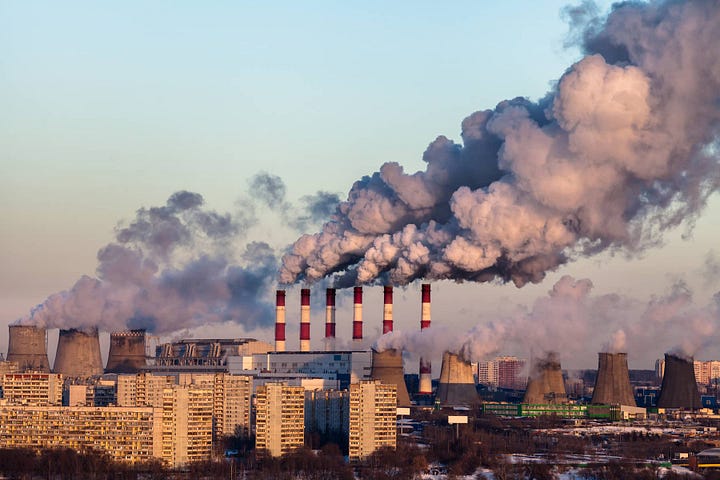

Family Guy certainly hurt poor Yana Lantratova’s feelings but not about Chelyabinsk. “The artist has the right to his vision,” she said, “but this is a deliberately offensive artistic image that has nothing to do with reality. This is deliberate work against our country. Information war through works of art. They specifically create the image of Russia as a country where everyone is dissatisfied with life, they drink, use drugs, take bribes. I hope that the management of the TV channels understands this and will limit the display of some stories”.
I haven’t spoken to one Russian specialist who has said that life outside Moscow and St Petersberg is a culture-filled vibrant land of milk and honey. If anything, I’ve been told it is the exact opposite: it’s a crying mess. Russian roads, schools, hospitals and other state infrastructure are falling apart, and there’s a reason why that’s happened.
Putin and the Russian leadership loyal to him have poured state resources into the arms industry for over 10 years to bring about the dream of ‘Novorossiya’, which included the preparation for a full-scale attack on Ukraine. Funds that were supposed to be allocated to state services were officially recorded in the books for social services and infrastructure, but were then diverted to the industrial sector supporting the arms industry. Naturally, a few rubles ended up in the pockets of an oligarch or two. That’s the reality that Lantratova doesn’t want to talk about publicly.
Poking fun at Russian life in the industrial hinterland, or Russia in general, apparently isn’t allowed- нет. No one is permitted to mention the tragic state of Russian services, infrastructure or the high level of alcoholism in the country—except, of course, if you are Vladimir Putin.
There are hundreds of videos on Telegram and other social media platforms documenting violence and/or drunken behaviour amongst the soldiers in training centres across Russia, at the front in Ukraine, or simply on city buses. It’s not a state secret, and I’m surprised Lantratova hasn’t raised the alarm about the deeper social malaise raised in the video. We’re told that Russian men drink themselves to death so they can forget their real life, and according to the UK’s intelligence services, life on the battlefield as well.
British intelligence sources explored reasons behind Russia’s huge death toll in the war in Ukraine, and found that a “significant minority” of the total plus 200,000 dead troops were not caused by fighting but excess alcohol consumption along with a number of other issues. According to the UK Ministry of Defense, there are “extremely high” numbers of incidents, crimes, and fatalities among deployed soldiers that are associated with alcohol. “With heavy drinking pervasive across much of Russian society, it has long been seen as a tacitly accepted part of military life, even on combat operations,” implying that this was largely expected due to views in Russian society at large.
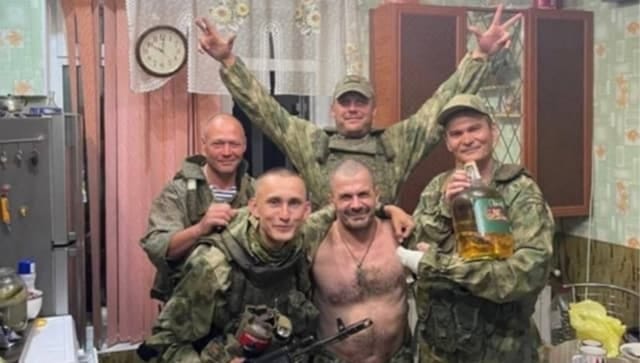
Besides Lantratova, Russian state media is certainly not sounding the alarm either, about this or any other domestic problem Russia needs to deal with, using most of their air time, instead, to denigrate and threaten the West. This is their function: they are agents participating in state-run active measures against their own citizens and foreign countries.
One of their roles is to deflect from the uncomfortable truths about Russia: the disasterous state of Russian infrastructure and services, but more importantly, the death of any form of citizen agency and organic democratic institutions, which have certainly exacerbated social malaise at home, and led so many Russians to flee their homeland for a longer and better life.
Data from the World Bank sets life expenctancy for males in Russia in 2023 at roughly 72 years old, an increase from 2020 when it was pegged at 66 across the Russian Federation. One in twenty Russians die from diseases related to alcoholism but that figure may be much higher due to the effects of other alcohol-surrogate drinks that escape state statistics. In comparison, the average life expectancy across the European Union is 80 years old, exceeding 82 in many individual European countries.
Statistically, Europeans live a longer life than their Russian counterparts because they have access to a variety of services, which contribute to their general well-being. Water sanitation is probably one of the most important. I open the tap in my kitchen and I can actually have a refreshing glass of clean water, which is not always possible in Russia. “With roughly two million lakes and a quarter of the world’s freshwater reserves, Russia is not lacking in any water,” reports The Borgen Project, but the state has not invested in sanitation infrastructure for years:
…faulty pipes, pollution and inefficient filters have left much of the population without clean potable water. Scientists estimate that up to 60% of Russia’s water reserves do not pass sanitary standards, due to pollution and chemical dumping.
As of 2018, more than 11 million Russians do not have access to clean drinking water, according to the Russian regulatory bodies. Reports also show that roughly a third of Russia’s population of 144 million drink water with high iron content. While ingesting iron isn’t harmful to one’s health, iron in the water attracts multiple breeds of bacteria, making it dangerous to drink.
In keeping with basic sanitation, what is taken for granted in most Western democracies isn’t a given in Russia: toilets, for example. According to official data from Russian sources in 2019, and confirmed by the London-based WaterAid NGO, as reported in The Moscow Times, “more than one-fifth of Russian households do not have access to indoor plumbing,” amounting to a wopping 35 million Russian homes. That’s a lot of missing toilets—a sore spot for many Russians. An analyst once told me that if you really want to get under the skin of the Kremlin, all you need to do is mention the lack of toilets in most Russian homes outside Moscow and St Petersberg: the trolls come running.
The Family Guy episode may have been over-the-top satire, offending Lantratova’s ‘sensitivities’, but it does expose some aspects of Russian life the Kremlin would prefer to keep from public debate. Russians aren’t blind, though.
Populist leaders, like Alexei Navalny, gained some traction with the Russian electorate by exposing the corrupt practices of the Kremlin and Putin’s loyalists, but framing their success this way doesn’t tell the full story. I would argue that Navalny, the business elite, and Russians of the diaspora have been too eager to lay the blame for the current state of affairs in Russia exclusively on Putin’s shoulders. Russia’s problems are systemic, and started a well before Putin. Russia has a long history of corruption at the hands of it’s elite, which has led to the current near collapse of its infrastructure. It’s a history of corruption and neglect at the hands of many, not one.
In healthy democracies, our leaders lose their power if citizens are fed up with the state’s inability to resolve problems that touch them: not so in Russia. There may be rumblings of discontent from Russia’s business elite, as recently leaked audio has exposed, or Prigozhin’s rants directed at the Minister of Defense, Sergei Shoigu, but how are you going to get Putin and his cronies out of the Kremlin? To be sure, not through democratic elections. Putin and his people have killed democracy in Russia. Some Russian faction of oligarchs will align with the security services to bring forward an unknown candidate who will step into Putin’s shoes when they’ve all had enough.
So, in the short-term, the only recourse Russians have to life is Russia is life somewhere else, and that’s what a millions of Russians have chosen. There are 30 million Russians living abroad, making it the second largest diaspora in the world behind China. Waves of Russian emigration have always coincided with unrest at home: when it was clear that the Red Russians were there to stay, White Russians, loyal to the Tsar, fled for their lives in great numbers to Turkey or Serbia first, and then onto Germany, France and the United States. In the first year of Russia’s criminal war in Ukraine, as documented by Andrei Soldatov, almost one million Russians left the ‘sacred’ motherland, causing a brain drain in key sectors such as IT, engineering, journalism and academia.
In the end, it is up to Russian leadership on how it wishes to govern at home, and we’re perfectly free in the West to criticise it, including through the genius of animated satire. What the over-reaction to the “Bonjour” episode reveals, essentially, is that Russian leadership and its loyal proxies just won’t permit any form of criticism to circulate through the infosphere, especially if it comes from the West.
They’ve created a make-believe motherland, and fed it through state television and other media vectors to the Russian population for years. The Family Guy simply held up a mirror reflecting the ugly truth—years of stagnation and neglect at the hands of the most corrupt and criminal leadership on earth.
It will become increasingly difficult for the Kremlin and its proxies to continue peddling their version of Russia, and hiding the truth about the war in Ukraine. Mind you, that won’t stop them from trying. According to TASS, 1,351 soldiers have died in Ukraine, and 3,825 have been wounded. But who’s buying those numbers? If you consider what happened with the May 9 Victory celebrations, not many.
Over twenty cities in Russia cancelled May 9 Victory Day celebrations and Immortal Regiment parades due to ‘security concerns’. Dara Massicot, a military expert at U.S. RAND, said that the Kremlin probably “wanted to avoid an unauthorised outpouring of grief” from Russian mothers, partners, and children over the loss of their men, killed at the front in Ukraine. This was probably the case.
According to U.S. leaked documents, Russian losses are estimated at between 189,500 and 223,000 casualties, with 35,500-43,000 men killed in action. The Kremlin could not permit the world to see thousands of grieving Russian citizens parading the streets carrying pictures of their dearly beloveds who lost their lives in Ukraine. It would be a public admission of Putin’s disasterous conduct of the war, and he cannot, under any circumstances, lose face.
In the distant future, there may be a “bonjour” when Russian leadership and Lantratova may begin to tackle the issues afflicting Russia and its society, but don’t hold your breath.
For now, the entire state apparatus and its propaganda proxies are at war with Ukraine and its own people. Putin and his inner circle have ordered Russian state media to place the blame for their war crimes in Ukraine and historic corruption at home and abroad on president Biden and NATO—anyone, of course, but themselves.

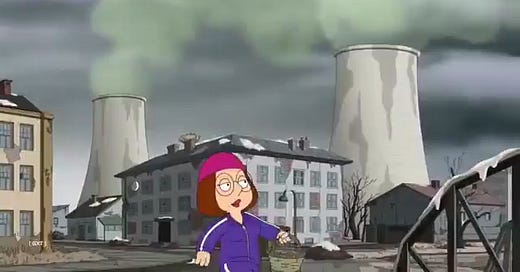


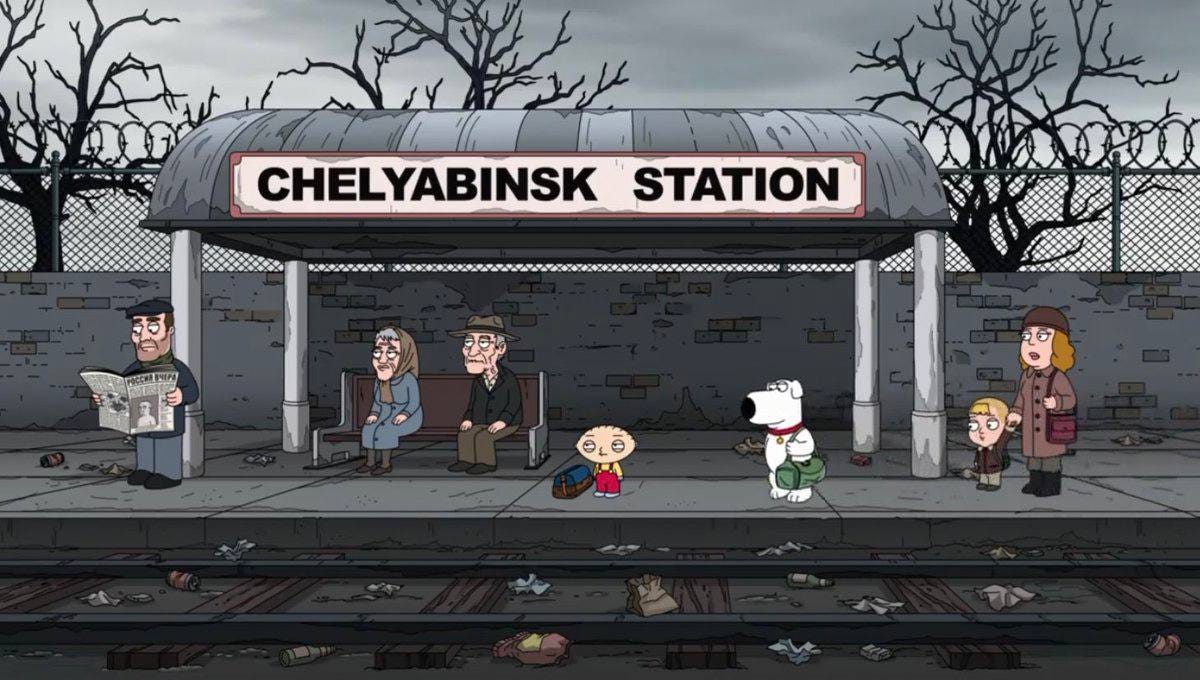
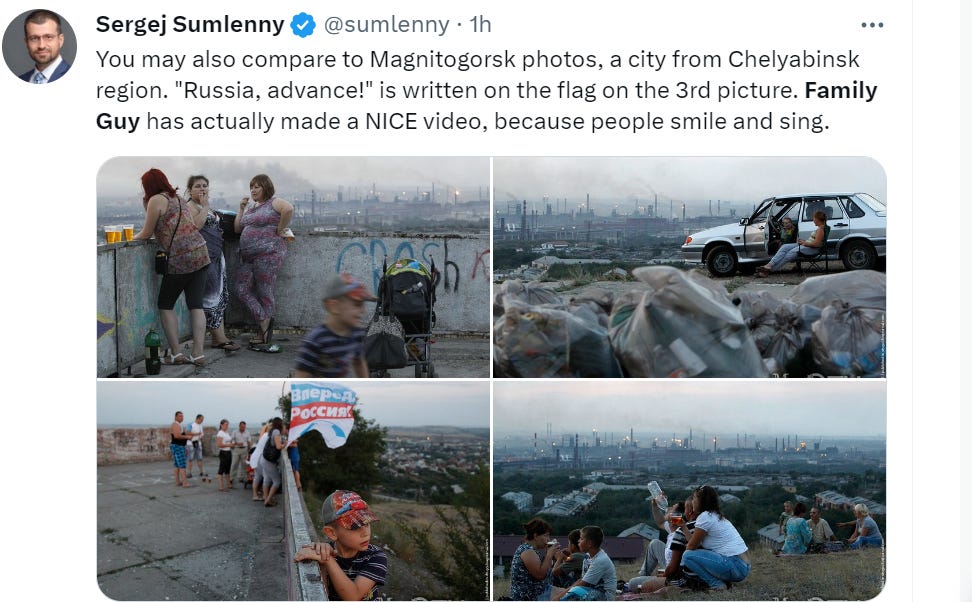

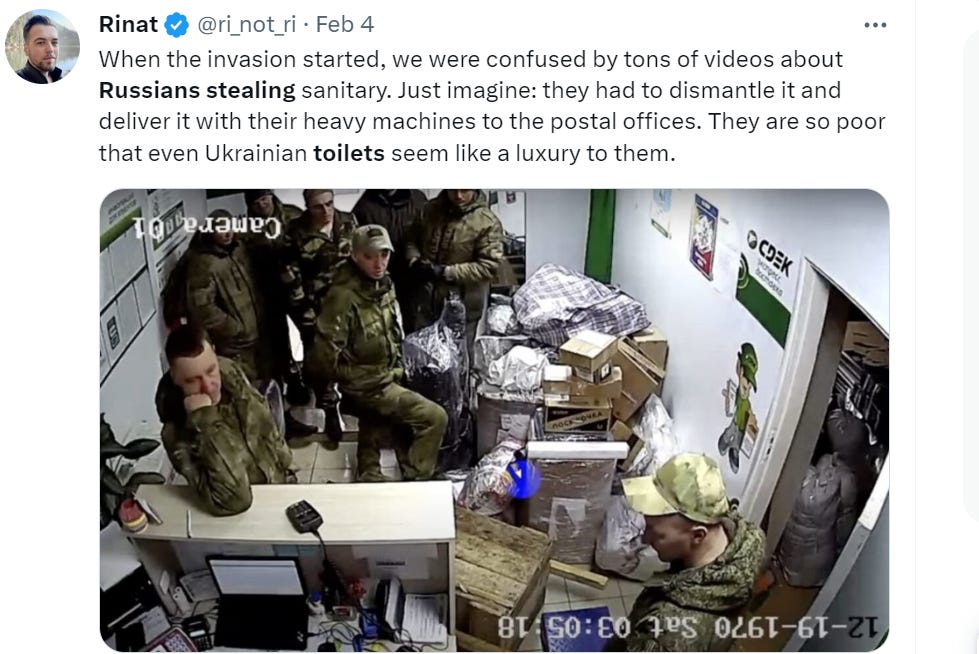
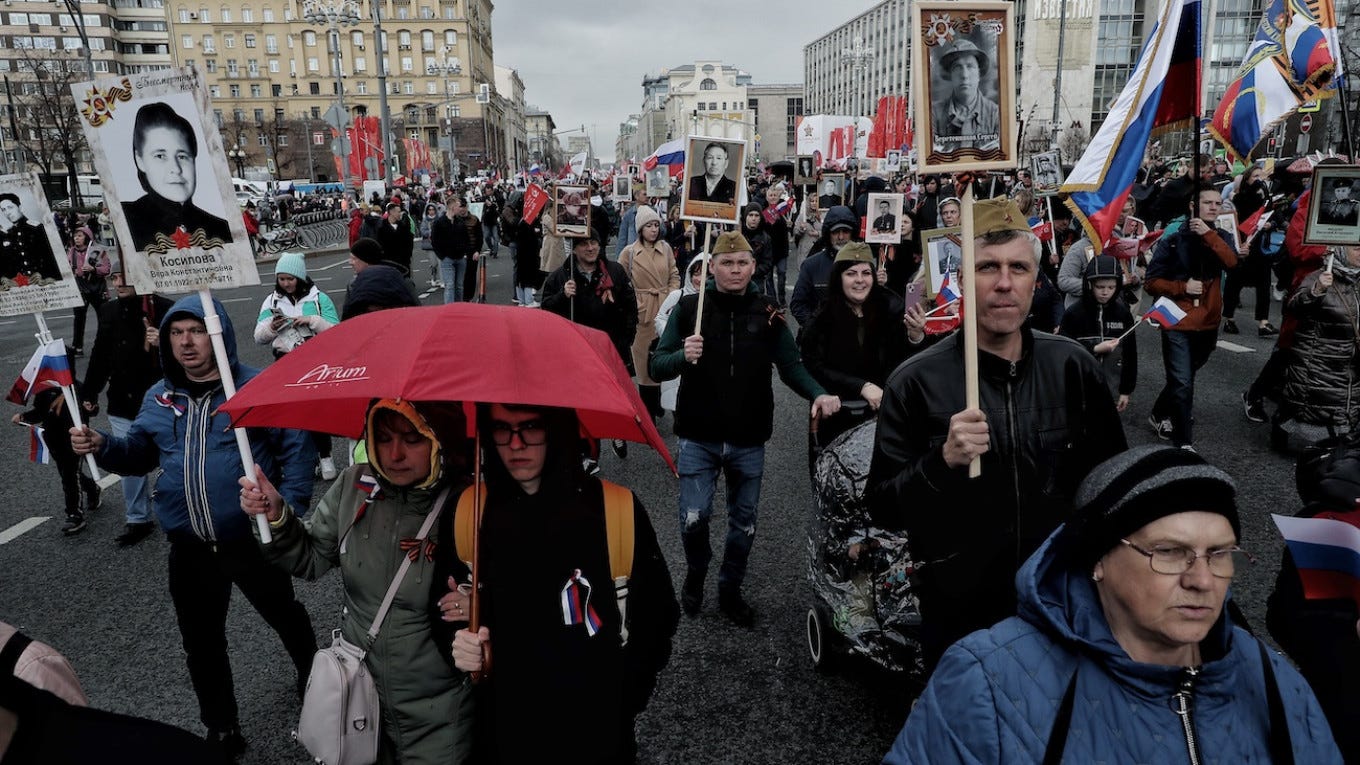

Share this post